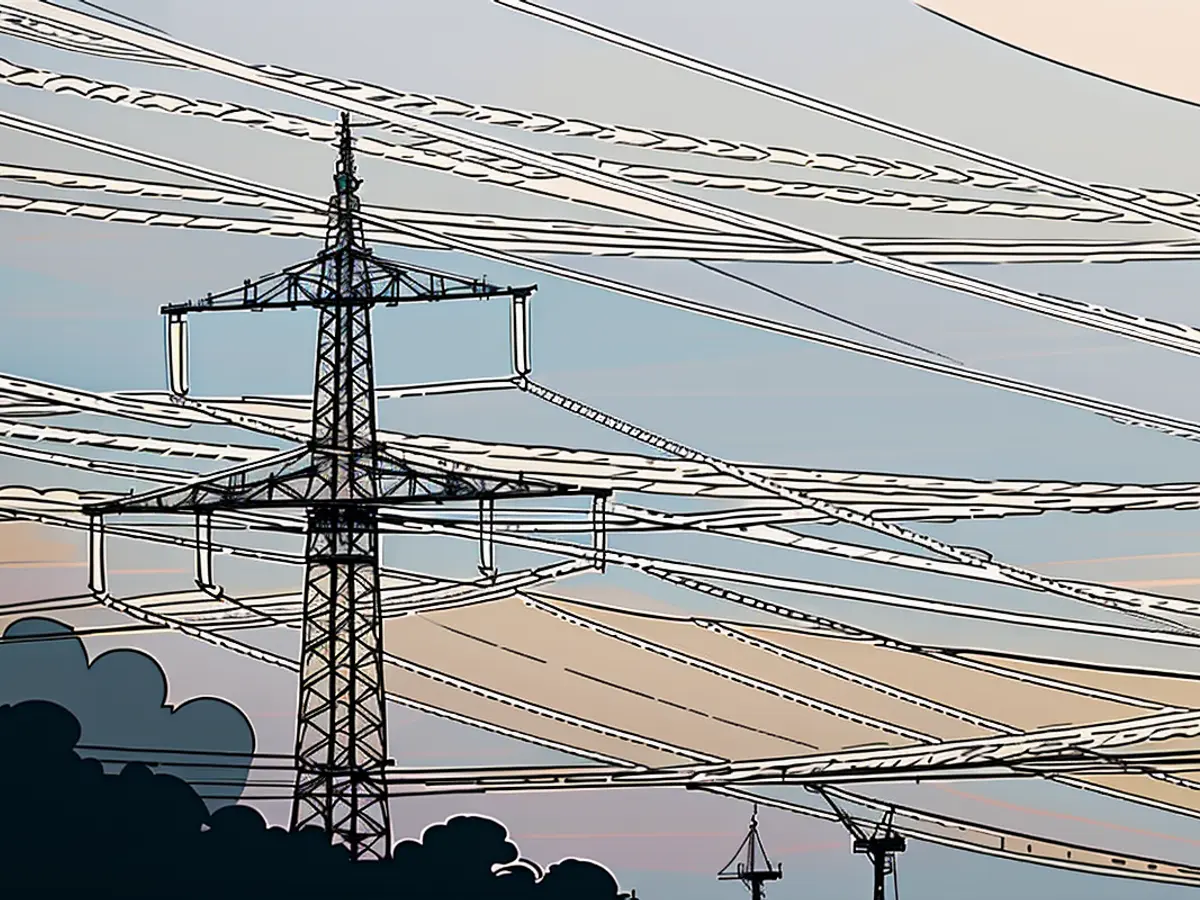The requirement to bury cables is nearing completion.
The cost of the energy transition is skyrocketing, and one way to reduce these expenses could be to stop using underground cables. This idea is gaining traction, even within the CDU/CSU. Once upon a time, the coalition government decided that underground lines would have priority.
If new cables aren't installed, wind power from the northern regions can't reach the south. But do these transmissions have to run through expensive underground cables? No, three of the four large transmission network operators are considering reconsidering the obligation to underground cables, and other countries are taking similar steps. According to a report in the "Sueddeutsche Zeitung," TransnetBW, Tennet, and 50Hertz are pushing for this change.
Even the energy supplier EnBW, located in Karlsruhe, supports the switch from underground cables to overhead lines in new projects like "Ostwestlink," "Nordwestlink," and "Suedwestlink." Financial Director Thomas Kusterer told ntv.de, "This could cut costs in half." Overhead lines are also easier and faster to construct. As Kusterer pointed out, "We can't afford not to receive efficiency gains. We can only spend each euro once."
To achieve climate goals in Germany, massive investment in the energy system's restructuring is necessary. "Mobilizing the necessary capital for the energy transition and enabling investments may be the greatest challenge of the coming years," says Kusterer. "Network expansion costs could cause a significant setback in public acceptance of the energy transition."
The underground cables preference introduced for large power highways by the Grand Coalition in early 2016 was meant to increase public acceptance of the network expansion. However, the tide is turning in politics.
The Climate Union within the CDU and CSU, as well as the CDU Economic Council, have been advocating for a change for a while. The states of Baden-Wuerttemberg and Saxony will introduce an initiative titled "Overhead Lines Instead of Underground Cables" to the Bundesrat on Friday. The most notable shift in opinion has come from Bavarian Prime Minister Markus Soeder, who said in the Bavarian Parliament on Thursday, "From now on, the principle should be: overhead where possible, underground where necessary." Up until then, the CSU in Germany was one of the most vocal supporters of underground cables.
All these initiatives share the same argument: underground cables are much more expensive than overhead lines, and these higher costs are borne by all electricity customers through network fees. The regulatory authority places the total investment required for the expansion of the transmission networks at around 320 billion euros. The potential savings from scrapping underground cables on land are estimated by the authority at 16.5 billion euros. Moreover, there could be savings of 18.8 billion euros for offshore connection lines, which have so far been extended partially as underground cables. Combining these two calculations results in an estimated 35.3 billion euros in potential savings.
As quoted by the "Sueddeutsche Zeitung," the head of the Federal Network Agency, Klaus Mueller, said, "Transmission lines have uncontested cost advantages. At the same time, we must avoid losing the momentum we have gained." Perhaps, then, it could still be debatable whether to give up the priority of underground cables for three transmission lines.
If the Nordwestlink, Südwestlink, and Ostwestlink were constructed, operated, and installed above ground, Muller estimates potential savings at about 16.5 billion euros. The transmission network operators TransnetBW, Tennet, and 50Hertz estimate potential savings of up to 20 billion euros. The lines are expected to be in operation from 2037, with construction starting in 2028.
Overhead lines, according to the initiative of the states of Baden-Württemberg and Saxony, have several advantages, including lower costs, faster construction, a smaller environmental footprint, and better operational benefits. Yet, the initiative acknowledges the potential for conflict due to local acceptance issues. Higher energy prices in the past, caused by the Russian aggression war in Ukraine, have made the population more attentive to the energy transition.
Read also:
The Federal Network Agency is closely monitoring the potential cost savings from switching to overhead lines for transmission networks, as advocated by the Climate Union within the CDU and CSU and other initiatives. In Baden-Württemberg, politicians are pushing for the use of renewable energies and believe that overhead lines can help lower costs associated with the energy transition.








